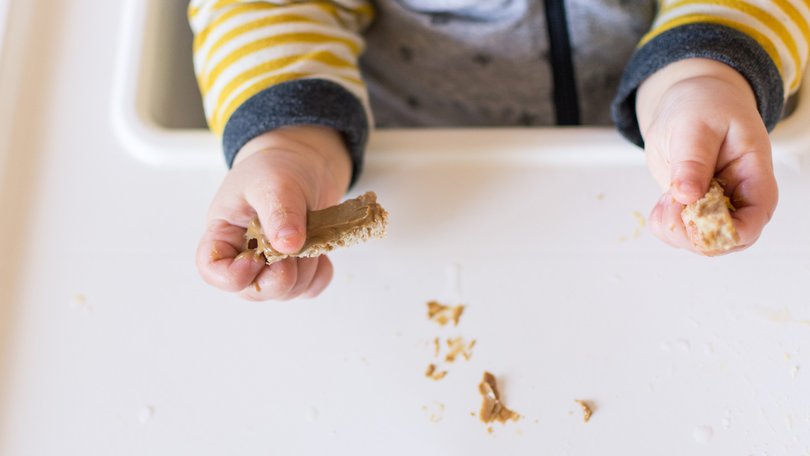LEAP a decade on: Landmark peanut allergy study is making a huge difference
A study that reversed medical advice by recommending feeding babies peanut products early to prevent allergies, has had a big effect in the real world.

A decade after a landmark study proved that feeding peanut products to young babies could prevent them developing life-threatening allergies, it’s making a big difference in the real world.
About 60,000 children have avoided developing peanut allergies after guidance first issued in 2015 upended medical advice by recommending introducing the allergen to babies as young as four months.
“That’s a remarkable thing, right?” said David Hill, an allergist and researcher at Children’s Hospital of Philadelphia, and author of a study published on Monday in the medical journal Paediatrics.
Sign up to The Nightly's newsletters.
Get the first look at the digital newspaper, curated daily stories and breaking headlines delivered to your inbox.
By continuing you agree to our Terms and Privacy Policy.Hill and colleagues analysed electronic health records from dozens of paediatric practices to track diagnoses of food allergies in young children before, during and after the guidelines were issued.
“I can actually come to you today and say there are less kids with food allergy today than there would have been if we hadn’t implemented this public health effort,” he said.
The researchers found that peanut allergies in children three and younger declined by more than 27 per cent after guidance for high-risk kids was first issued in 2015 and by more than 40 per cent after the recommendations were expanded in 2017.
The effort hasn’t yet reduced an overall increase in food allergies in the US in recent years.
About eight per cent of children are affected, including more than two per cent with a peanut allergy.
Peanut allergy is caused when the body’s immune system mistakenly identifies proteins in peanuts as harmful and releases chemicals that trigger allergic symptoms, including hives, respiratory symptoms and, sometimes, life-threatening anaphylaxis.
For decades, doctors had recommended delaying feeding children peanuts and other foods likely to trigger allergies until the age of three.
But in 2015, Gideon Lack at King’s College London, published the ground-breaking Learning Early About Peanut Allergy, or LEAP, trial.
Lack and colleagues showed that introducing peanut products in infancy reduced the future risk of developing food allergies by more than 80 per cent.
Later analysis showed that the protection persisted in about 70 per cent of kids into adolescence.
The study immediately sparked new guidelines urging early introduction of peanuts - but putting them into practise has been slow.
Confusion and uncertainty about the best way to introduce peanuts early in life led to the lag, according to a commentary that accompanied the study.
Early on, medical experts and parents alike questioned whether it could be done outside of tightly controlled clinical settings.
The new study emphasises the current guidance, updated in 2021, which calls for introducing peanuts and other major food allergens between four and six months, without prior screening or testing, Hill said.
Parents should consult their paediatricians about any questions.
“It doesn’t have to be a lot of the food, but little tastes of peanut butter, milk-based yogurt, soy-based yogurts and tree butters,” he said.
“These are really good ways to allow the immune system exposure to these allergenic foods in a safe way.”
